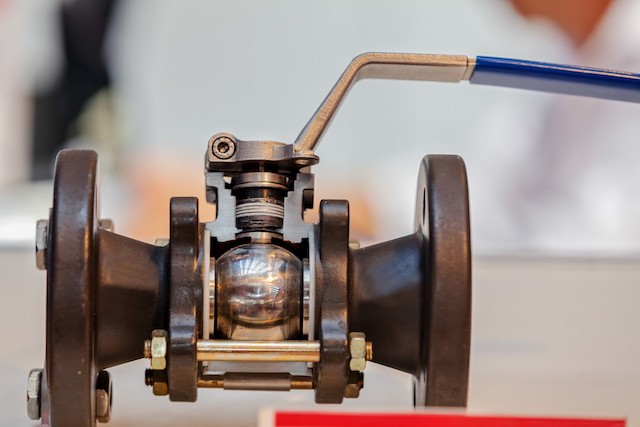Severe Service Control Valves: How Do They Work?
09-04-23

Valve technology has a little-known connection to musical instruments. Heinrich Stoelzel drastically improved upon the double piston valve in the early 19th century as a means of allowing horn players greater access to a range of pitches.
Today, valves play an integral role in transportation, crude oil refinement, and other sectors that make modern life possible. One of the most important valves is known as severe service control valves.
So what do these devices do, and what type of control valve maintenance do they require? Read on to learn more.
What Does Severe Service Mean?
Depending on whom you ask, severe service can have different meanings. The common theme refers to high-pressure drops. This can generate loud noises and vibrations in vapor service.
Outgassing, cavitation, and flashing can occur as well. In the form of severe service, pressure changes can erode internal components, plug passages, or cause corrosion.
There are basically three types of severe service valves on the market. Severe service control valves are one. Severe service isolation valves and severe service check valves are also common.
These valves are built to withstand high pressure. This is because they work in challenging environments. They are made from strong materials that can withstand high temperatures and pressures.
Depending on which severe service valve you need, the device can allow for various flow paths, passages, and capacities.
How to Find the Right Severe Service Valve
Whether your industrial needs are, there are several things to consider before ordering your severe service valve. Along the way, you can count on the team at Everlasting Valve Company to help you find the ideal valve device for your business needs.
Step 1: Evaluate the Process
The first step when selecting your severe service valve is to gain a clear understanding of the application. Failure to make the right valve choice could lead to critical failures down the road.
Ensure that your technicians or engineers have a clear understanding of the exit and inlet pressure. Process temperatures and media characteristics are also critical.
Unexpected process conditions should also be considered. These can include preparing for higher-than-expected temperature conditions. You may also need to anticipate conditions for when the plant starts up.
If your company works with fluids, that can cause unique challenges. Some valves need to be able to pass impurities.
Or they outgas under abnormal situations. All of the petroleum valves sold through Everlasting Valve Company are designed to minimize leaking.
Step 2: Understand Valve Challenges
Now you have a sound knowledge of the range of conditions your severe service control valve will encounter.
The following are potential challenges your valve may face: You will need to know how these variables will potentially impact the valve you are looking for.
Common Valve Challenges
Valves are often exposed to high vibrations and velocities. Any sudden change in noise levels could damage the valve. If your work environment exposes valves to high-pressure drops, make sure the valve can handle sound levels of 110 to 115 dB.
Valves that handle liquids can experience damage as the liquids flash or cavitate. This can reduce the life of your valve if it is not suited for severe service-type environments.
Extremely cold temperatures can make metal brittle. This can also make sealing the valve very difficult. Valves that work with cryogenic temperatures are made from special materials and designed to handle frigid temperatures.
On the other hand, high temperatures require severe service control valves to require special materials. When buying control valves, ask one of our team members if the materials of the valve are made with the proper alloys to maintain durability during expansion under high heat.
Another area to focus on is the liquid and vapor combination. These are subject to choke flow and cavitation if the right valve isn’t used.
Particles that become entrained in the vapor can cause plugging. They can also cause issues like erosion.
Corrosion can result from many factors. Anticipating the types of corrosion your valve may encounter should be a top priority. Often, there are multiple types of corrosion that happen at the same time.
Remember, severe service use quite often involves several combinations of the factors described above. You should consider all or most of them as you make your valve selection.
Step 3: Consider Optimal Solution Options
Now that you understand the expected and unexpected conditions, you can identify solution options.
It may seem like there are a myriad of solutions. Only a few valve options will likely be ideal for the applications posed by your company. So where do you start?
Some companies offer customized valves. You will need to weigh those benefits versus going with a company and product with a proven track record. A history of product support is also important.
The starting point in the evaluation process should include the product design. Ask yourself if the valve is appropriate for its use.
An angle valve, for example, is often great for two-phase liquid outgassing. This is because the design minimizes damage to the valve body. Whether your company works with petroleum production or another industry, keep the topics listed in this article in mind.
Learn More Useful Tips About Severe Service Control Valves
Everlasting valves set the bar for high-quality valves. Companies employ our valves in the most rugged of environments. Our Hydrocyclone, for example, was deployed in Alaska in 1995.
Whether you require valves to work in harsh environments or elsewhere, you can count on Everlasting petroleum valves to get the job done.
Our company was founded more than a century ago. Since then, we have surged ahead of our competitors by providing unique designs that are constantly refined.
To learn more about our wide range of services, contact our team today. Our products, including severe service control valves, exceed the highest standards required by the petroleum industry and elsewhere.